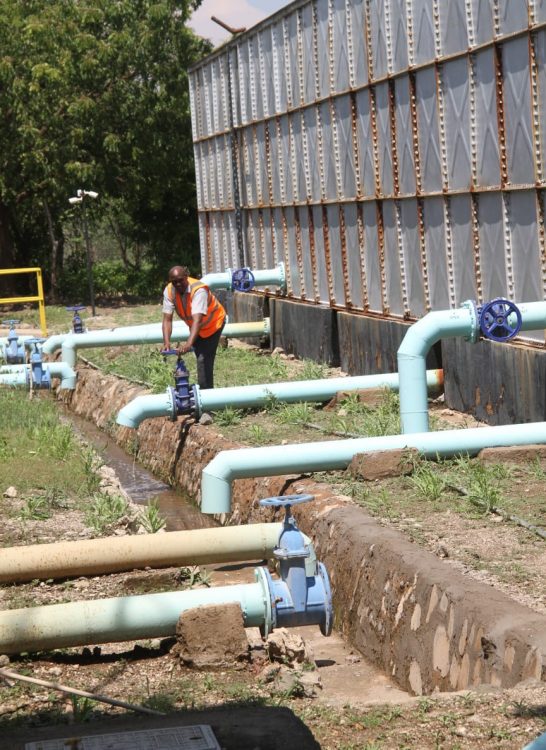Worried Magadi residents oppose threats to close Tata Chemicals
By Christine.Musa, January 20, 2024A visit to Magadi in Kajiado West and interaction with residents depict that all is not well, devastated residents are talking in low tones.
The undertones have been informed by the county government of Kajiado’s announcement of its intention to shut down the giant Tata Chemicals Magadi over unpaid land rate arrears, but locals say the multi-national trona manufacturer controls the economy of the remote constituency and it is the last hope of livelihood they largely depend on.
Besides the employment of hundreds of locals who work for the company and millions of education bursaries and scholarships, health and water uncertainty is the untold nightmare the locals are grappling with.
Magadi Level 4 Hospital, owned and managed by Tata Chemicals, is the only health facility the entire division depends on for critical medical services.
In a radius of over 100 km, it is the only facility with ambulance services. The 55-bed capacity hospital has also become a beckon of hope for maternal health care and is said to have reduced child mortality.
“My daughter just gave birth a few hours ago for free. I am elated about the presence of a hospital because the risk of delivery under the watch of traditional birth attendants is not there.
“I gave birth to all my children at home without a medical attendant, but life has changed and the reality of lifestyle diseases is with us. If this hospital is not there, it means I have to travel over 100 kilometres to get a maternal health facility, and the risk is high.
“It is also hectic because we have no defined means of transport; in case of an emergency, that means I ferry a pregnant woman using a bodaboda all the way to Kiserian or Kajiado,” Dorcus Murianka narrated.
“I am here to seek medical services, but I am a worried patient because of the uncertainty currently surrounding Tata Chemicals’ existence here.
“If the company shuts down, that means our health will be compromised,” Parkuyiare Ole Musanga of Ilparakuo village said.
Medical services
According to the medical superintendent in charge of the facility, Raymond Bahati Biria, at least 130 patients are treated at the facility daily, with the most common cases reported to be pneumonia.
Murandawua, Oloilepu, Lenkobei, Olpira, and Oloserian villages are among the many surrounding areas where the low expression is evident.
“Shutting down Tata Magadi means thirst to us. Where will we get water for domestic use and livestock? Michael Kisioki, a resident of Magadi, posed.
The entire division and its environs entirely depend on water from Nkurumani Springs, kilometres away, solely supplied by Tata Chemicals for free.
1 million litres of water are supplied daily using the company pipeline to various water points, and water bowsers refill underground tanks where residents fetch the same.
Wilson Tima, who is the community affairs manager at Tata Chemicals, says the water is treated to make it fit for human consumption before being supplied.
“1.5 litres of water are treated daily here at our plant to ensure that the water is safe for human consumption. We have invested largely in providing water to homes because we understand the thirst challenge facing locals,” Tima said.
According to environmental experts, boreholes cannot be sunk in the Magadi area because of the active volcanic activities and heavy minerals in the area, leaving residents of the remote villages with limited choices.
Easther Sanayian of the Emunyan Women group is also among the residents who fear losing a source of livelihood.
Sanayian is among the local women who engage in modern bead-making at a station within the company.
“We have undergone vigorous training in modern bead making, and that has expanded our market. We used to make just ordinary bead ornaments until we were trained, and that has significantly expanded our customer base,” she said.

38 secondary school students from the area and 25 university students benefit from bursary scholarships courtesy of the company annually.
The company train is also a significant means of transport for locals who only pay Ksh70 to Kajiado, while ordinarily, they pay Ksh850 while using public service vehicles.
Tata Chemicals occupies a 137,134-acre piece of land. Trona, which is a natural resource, is transported using a railway line to the port of Mombasa before being exported to various parts of the world for further processing.
